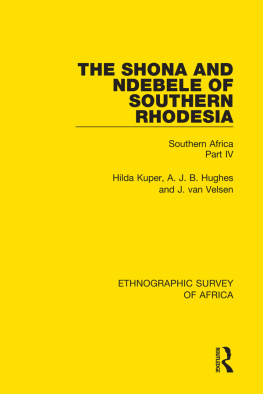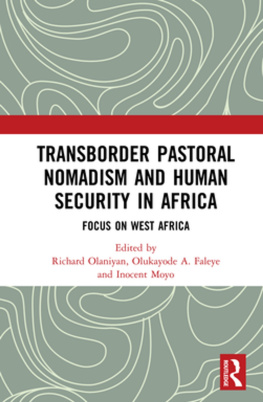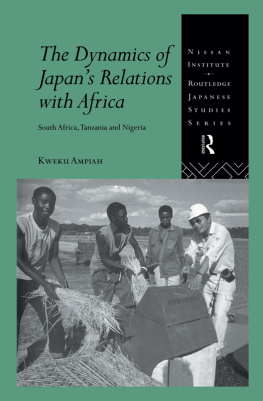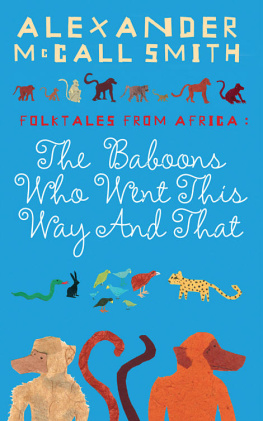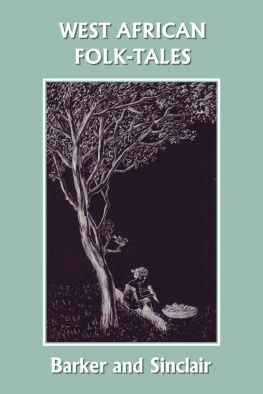INTRODUCTION
Many years ago a book on the Folk-Tales of the Eskimo was published, and the editor of The Academy (Dr. Appleton) told one of his minions to send it to me for revision. By mischance it was sent to an eminent expert in Political Economy, who, never suspecting any error, took the book for the text of an interesting essay on the economics of "the blameless Hyperboreans."
Mr. Dayrell's "Folk Stories from Southern Nigeria" appeal to the anthropologist within me, no less than to the lover of what children and older people call "Fairy Tales." The stories are full of mentions of strange institutions, as well as of rare adventures. I may be permitted to offer some running notes and comments on this mass of African curiosities from the crowded lumber-room of the native mind.
I. The Tortoise with a Pretty Daughter.The story, like the tales of the dark native tribes of Australia, rises from that state of fancy by which man draws (at least for purposes of fiction) no line between himself and the lower animals. Why should not the fair heroine, Adet, daughter of the tortoise, be the daughter of human parents? The tale would be none the less interesting, and a good deal more credible to the mature intelligence. But the ancient fashion of animal parentage is presented. It may have originated, like the stories of the Australians, at a time when men were totemists, when every person had a bestial or vegetable "family-name," and when, to account for these hereditary names, stories of descent from a supernatural, bestial, primeval race were invented. In the fables of the world, speaking animals, human in all but outward aspect, are the characters. The fashion is universal among savages; it descends to the Buddha's jataka, or parables, to sop and La Fontaine. There could be no such fashion if fables had originated among civilised human beings.
The polity of the people who tell this story seems to be despotic. The king makes a law that any girl prettier than the prince's fifty wives shall be put to death, with her parents. Who is to be the Paris, and give the fatal apple to the most fair? Obviously the prince is the Paris. He falls in love with Miss Tortoise, guided to her as he is by the bird who is "entranced with her beauty." In this tribe, as in Homer's time, the lover offers a bride-price to the father of the girl. In Homer cattle are the current medium; in Nigeria pieces of cloth and brass rods are (or were) the currency. Observe the queen's interest in an affair of true love. Though she knows that her son's life is endangered by his honourable passion, she adds to the bride-price out of her privy purse. It is "a long courting"; four years pass, while pretty Adet is "ower young to marry yet." The king is very angry when the news of this breach of the royal marriage Act first comes to his ears. He summons the whole of his subjects, his throne, a stone, is set out in the market-place, and Adet is brought before him. He sees and is conquered.
"It is no wonder," said the king,
"This tortoise-girl might be a queen."
Though a despot, his Majesty, before cancelling his law, has to consult the eight Egbos, or heads of secret societies, whose magical powers give the sacred sanction to legislation. The Egbo (see p. 4, note) is a mumbo-jumbo man. He answers to the bogey who presides over the rites of initiation in the Australian tribes.
When the Egbo is about, women must hide and keep out of the way. The king proclaims the cancelling of the law. The Egbos might resist, for they have all the knives and poisons of the secret societies behind them. But the king, a master of the human heart, acts like Sir Robert Walpole. He buys the Egbo votes "with palm-wine and money," and gives a feast to the women at the marriage dances. But why does the king give half his kingdom to the tortoise? When an adventurer in fairy tales wins the hand of the king's heiress, he usually gets half the kingdom. The tortoise is said to have been "the wisest of all men and animals." Why? He merely did not kill his daughter. But there is no temptation to kill daughters in a country where they are valuable assets, and command high bride-prices. In the Australian tribes, the bride-price is simply another girl. A man swops his sister to another man for the other man's sister, or for any girl of whose hand the other man has the disposal.
II. The second story is a very ingenious commercial parable, "Never lend money, you only make a dangerous enemy." The story also explains why bush cats eat poultry.
III. The Woman with Two Skins is a peculiar version of the story of the courteous Sir Gawain with his bride, hideous by day, and a pearl of loveliness by night. The Ju Ju man answers to the witch in our fairy tales and to the mother-in-law of the prince, who, by a magical potion, makes him forget his own true love. She, however, is always victorious, and the prince
"Prepares another marriage,
Their hearts so full of love and glee,"
and ousts the false bride, like Lord Bateman in the ballad, when Sophia came home. In this case of Lord Bateman, the scholiast (Thackeray, probably) suggests that his Lordship secured the consent of the Church as the king in the tortoise story won that of the Egbos. Our tale then wanders into the fairy tale of the king who is deceived into drowning his children, in European folk-lore, because he is informed that they are puppies. The Water Ju Ju, however, saves these black princes, and brings forward the rightful heir very dramatically at a wrestling match, where the lad overthrows more than he thought, like Orlando in As You Like It, and conquers the heart of the jealous queen as well as his athletic opponents.
In the conclusion the jealous woman is handed over to the ecclesiastical arm of the Egbos; she is flogged, and, as in the case of Jeanne d'Arc, is burned alive, "and her ashes were thrown into the river." Human nature is much the same everywhere.



